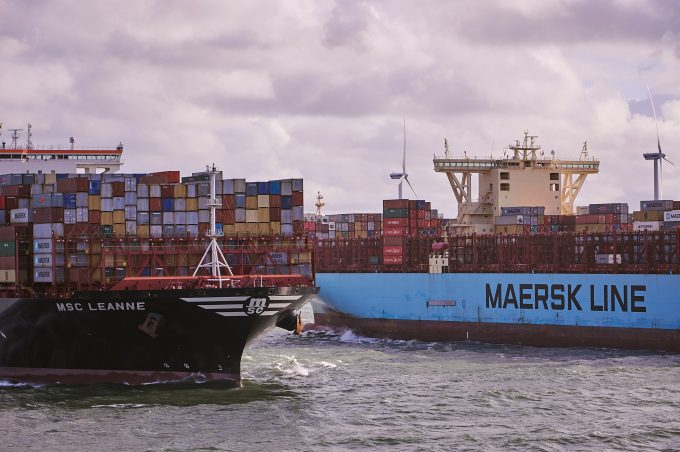
The 2M partners, Maersk and MSC, have cut two scheduled transpacific calls, but the two lines offer different reasons.
Maersk said today its TP6/MSC Pearl service would ‘slide’ by a week
from its 1 February departure date ex-Asia, and the TP2/MSC Jaguar loop
would also be delayed by a week from its advertised sailing of 14
February.
The Danish carrier said it was “in view of the accumulated schedule
delays” in its Asia-North America network, while MSC, which has also cut
four standalone voyages between 30 January and 14 February, gave the
reason as “the anticipated slowdown in demand around the Chinese New
Year”.
“The change will help us to match capacity with the expected weaker demand for shipping services,” added MSC.
This year, the CNY, into the ‘Year of the Tiger’, falls on 1 February
and normally demand is softer for a week or two after the holiday.
Moreover, there is still a huge backlog of vessels waiting to berth
at US west coast ports, with an estimated 500,000 teu of cargo to
discharge, and some ships have to wait for more than a month.
According to the port of Los Angeles’ Signal data, at the
end of last week there were more than 50 ships idling 150 nautical miles
from the port, awaiting a berth, including the 12,726 teu YM Totality, which has been held off for almost 50 days.
A carrier source told The Loadstar this morning that although the reasons for the two ‘slidings’ given by Maersk and MSC were different, the aim was the same.
“I think the carriers need to pause; whether that is by blank
sailings or slidings it doesn’t really matter. It is pointless sending
more ships across the Pacific until some of the backlog is cleared,” he
said.
Elsewhere, Ocean Alliance member lines CMA CGM, Cosco, OOCL and
Evergreen have signed-off on their new Day 6 network product which will
launch in April. It will deploy 352 ships across 42 services, which
compares with the outgoing Day 5’s 333 vessels for 39 services.
CMA CGM, which will supply 121 ships, said the capacity increase and
expansion of services would meet demand and “support its customers’
business”.
The annual tweaking of the Ocean Alliance network will, according to
OOCL, “enhance the competitiveness of the Ocean Alliance product…to meet
the evolving needs of the market”. In practice however, there does not
appear to be any major changes in the Day 6 product from Day 5 and,
according to maritime intelligence company eeSea’s analysis, some of the minor changes reflect enhancements already introduced.
Furthermore, with acute port congestion plaguing vessel operations
around the world, the pro-forma schedules are subject to significant
change, particularly in North Europe, where the OA has been forced to
consolidate and rationalise calls due to excessive berthing times at
some ports.